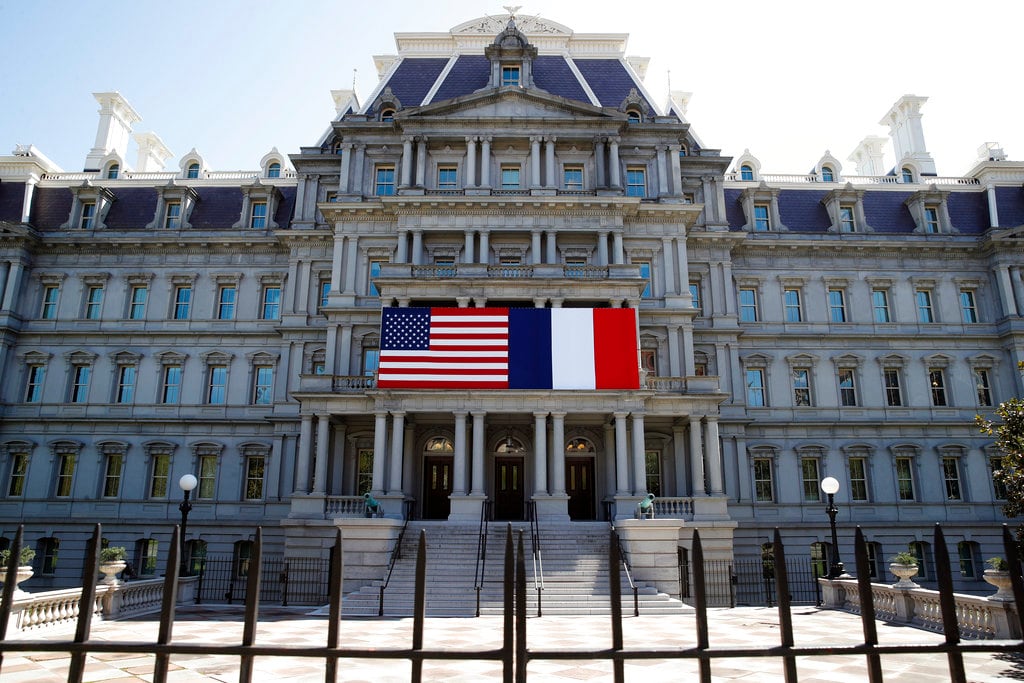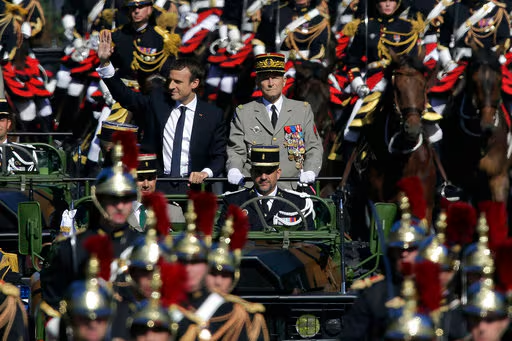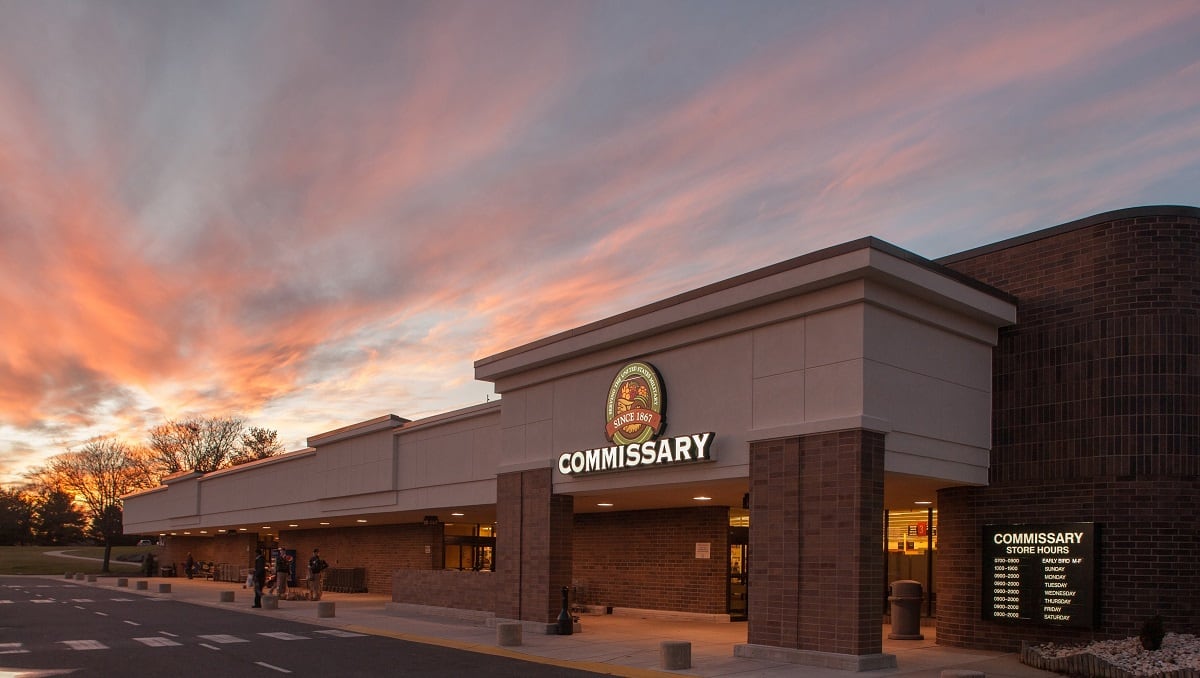PARIS — Of everything Emmanuel Macron has accomplished in nearly a year as France’s president, the most important may be his tough-love friendship with Donald Trump.
From their first bone-squeezing handshake to Macron’s recent claim that he persuaded Trump to bomb Syria, it’s been an improbable relationship. And it will be on pomp-filled display starting Monday as Macron goes on a state visit to Washington, the first by any leader since Trump took office.
Macron calls Trump all the time. With other world leaders too wary or weak to woo the impulsive U.S. president, Macron calculates that it’s smarter and safer to talk to Trump than isolate him.
The 40-year-old moderate progressive, who had never held elected office before he won France’s presidential election, defended his overtures to the 71-year-old conservative Trump in an interview on Fox News airing Sunday.
“I am not going to judge ... what should be your president, or to consider that because of these controversies or because of these investigations, your president is less credible,” he said.
The French president has the most to gain from the three-day state visit. He wants to fortify his image as the face of today’s Europe and the No. 1 defender of a liberal world order, as well as prove that France is essential to solving world problems such as Iran’s nuclear ambitions and international trade wars.
His aims may sound like French hubris or wishful thinking, but they are consistent with the “France is back” global strategy Macron has set for his tenure.
He talks regularly to Russian President Vladimir Putin and other controversial leaders, too. He also has tried his own diplomatic maneuvering in the Middle East with the goals of defending French interests and making sure Europe has a say in the region’s future.

For all their camaraderie, Macron and Trump disagree on some fundamental issues.
Take global warming. Macron mocked Trump’s campaign slogan by promising in a Twitter video he recorded in English to “Make our planet great again!” The video was posted moments after Trump announced he wanted to pull out of the U.N.-sponsored Paris climate accord last year.
Policy toward Iran is another point of discord. France is the most vigorous defender of the 2015 deal curbing Iran’s nuclear ambitions. Trump is threatening to abandon the agreement next month. Macron hopes to make progress this week on convincing Trump to stay onboard.
And then there’s trade. Macron and German Chancellor Angela Merkel — who planned to visit Washington on Friday — have pushed back hard on Trump’s steel tariffs and his America First vision, which threaten Europe’s powerful single market.
By design, Macron’s state visit will be more about symbolism than substance, and no big breakthroughs are expected.
But over the long term, Macron hopes his rapport with Trump will help mitigate some of their policy differences. His office holds up the U.S.-French cooperation on missile strikes on Syria this month as a model for future joint actions.
So how has Macron managed to avoid annoying Trump, famously sensitive to slights?
“He has played Trump very well,” said Nicolas Dungan, senior fellow at the Atlantic Council, a Washington-based think tank.
RELATED

While other world leaders and veterans of Beltway politics have made Trump feel like an outsider, Macron “accepts him and respects him rather than disdaining him,” Dungan said. “It’s a very effective strategy of influence ... through respect and treating him legitimately.”
At least so far. Macron still runs the risk of getting “tagged with Trump’s vulgarity, which so far he’s been immune to,” Dungan said.
Macron’s ease in speaking English probably helped in establishing a rapport — as did his ability to play the tough-guy game that Trump relishes.
Despite being smaller and younger than Trump, Macron has been able to spar in a way that begets admiration instead of resentment, starting with their first meeting at a NATO summit in May, where Macron took Trump’s hand and wouldn’t let go.
In Trump’s confrontational world, “Macron comes across as straight arrow, ready for a fight,” said Francois Heisbourg, a former French government adviser and current chair of the International Institute for Strategic Studies. At their NATO meeting, “Macron twists his arm. And this is the beginning of a great friendship,” Heisbourg said.
The French president’s U.S. visit will highlight “Macron’s rather uncanny ability” to get along with hard-line leaders, Heisbourg said. “He is apparently the only one who can actually talk with all of them substantively, while at the same time not appearing to be jettisoning his own values.”
Macron also hopes the Washington trip will also raise his profile everywhere else — from the EU to Syria and Israel-Palestinian peacemaking.
The trip will be a welcome distraction from Macron’s troubles at home: He takes off the same day labor strikes are expected to halt a majority of French trains and a quarter of Air France flights.
As Macron prepares to be feted at two fancy dinners and give a special speech to Congress, the White House and Elysee Palace are stressing their likenesses instead of points of discord.
Both Macron and Trump are newcomers to politics with a background in business. And France is considered the first American ally, for helping the colonists win the Revolutionary War.
Macron will celebrate the long-running alliance by giving Trump an oak tree sapling from the site of one of the first World War I battles involving American troops, the Battle of Belleau Wood.
It’s a sign of appreciation for the sacrifices America made for France— and an apparent nod to Macron’s concern for the environment.
He wants it planted in the White House gardens.
Darlene Superville in Washington contributed.





